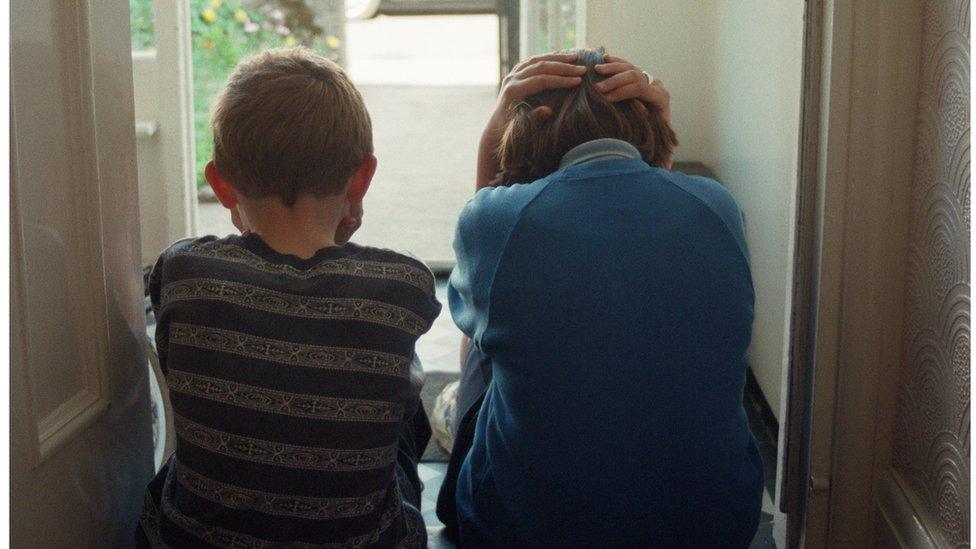Mental Health: Covid lockdown sees demand rise for Childline
- Published
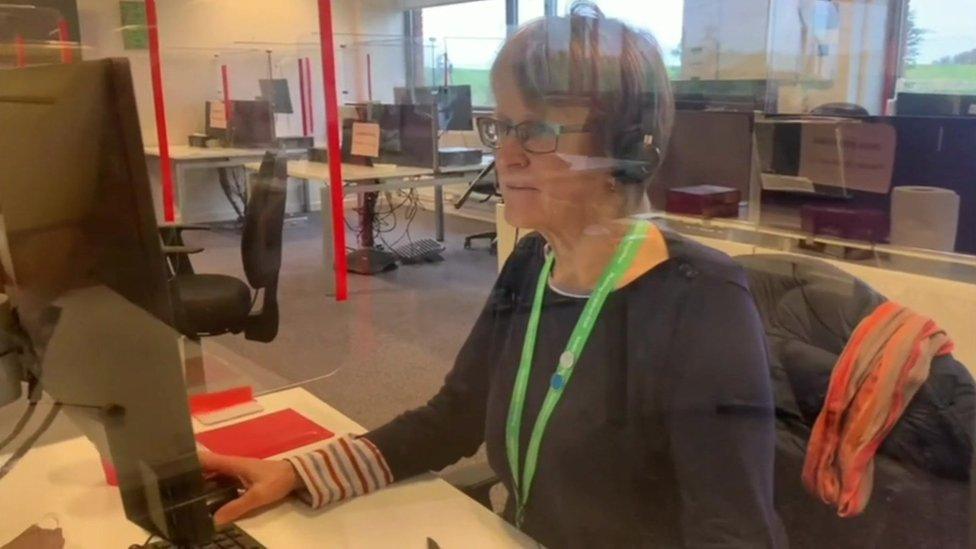
Volunteer Ewa Turczanska said there has been "a lot more anxiety" among callers during the pandemic
Childline is appealing for volunteers, having seen a rise in demand for its services during Covid-19 restrictions.
Since April, mental health counselling sessions delivered to young people in Wales have increased by 13% on average.
However the service has also seen a 40% decline in the number of volunteer counsellors across the UK.
Concerns raised by those using the service during lockdown include anxiety, low mood, depression, loneliness and low self-esteem.
Childline, run by the NSPCC, offers free support and advice to children and young people over the phone and online.
It has two bases in Wales - Cardiff and Prestatyn, Denbighshire - along with 10 elsewhere in the UK.
Between last April and December, 1,934 mental health counselling sessions were provided to children who said they were from Wales.
That equates to a monthly average of 215 sessions - a 13% rise on the pre-lockdown monthly average between January and March 2020.

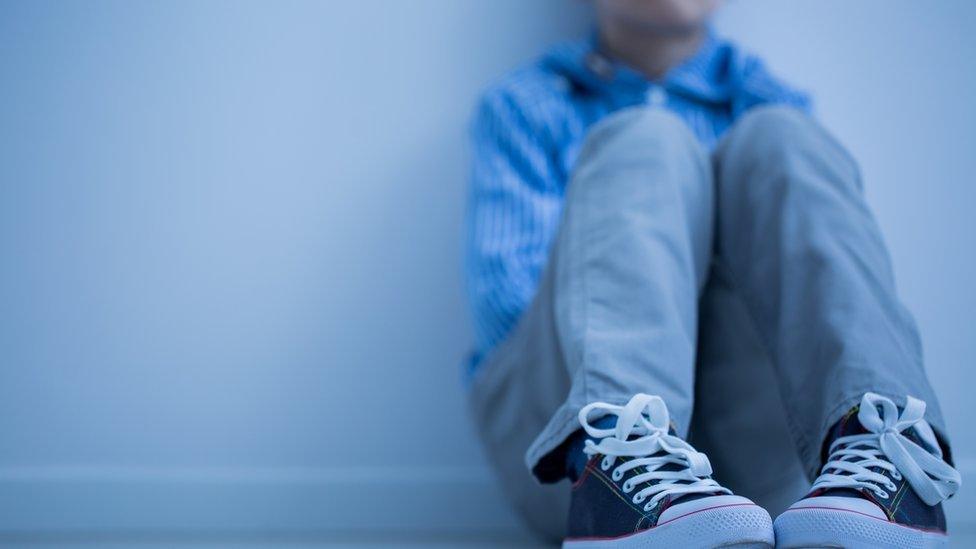
'I am forcing myself to get out of bed'
Here are two examples of calls received in December by Childline:
"I am feeling so overwhelmed and I am scared for my mental health. I am forcing myself to get out of bed and have lost interest in everything. I am scared that I am not going to succeed in life and feel like a freak" (Boy, 15, Wales)
"I am in a really bad place. I am being bullied online by a group of girls I used to be close with from college. I am terrified about going back to college in January. I don't know what to do anymore and I cannot see things improving for me. My anxiety is through the roof and I don't think people understand the severity of how bad I am feeling" (Girl, 17, Wales)

The real number of service users from Wales could be higher because some opted not to disclose their location.
Meanwhile, volunteer numbers have dropped by 40% across the UK.
In Wales, the charity had set a target of 174 active volunteers in 2019-20 - but they currently have less than half that number with 78.
Vicci Holbrook-Hughes, staff supervisor at the Prestatyn base, said the situation is "desperate", with evening and weekend volunteers especially in demand as well as fluent Welsh-speakers.
"It's really serious because the number of children and young people that need to speak to us is increasing, while our number of volunteers is decreasing," she said.
"Here in Prestatyn we're down by 50% of our volunteer numbers.
"There is a real problem that we are not able to talk to everybody that we want to.
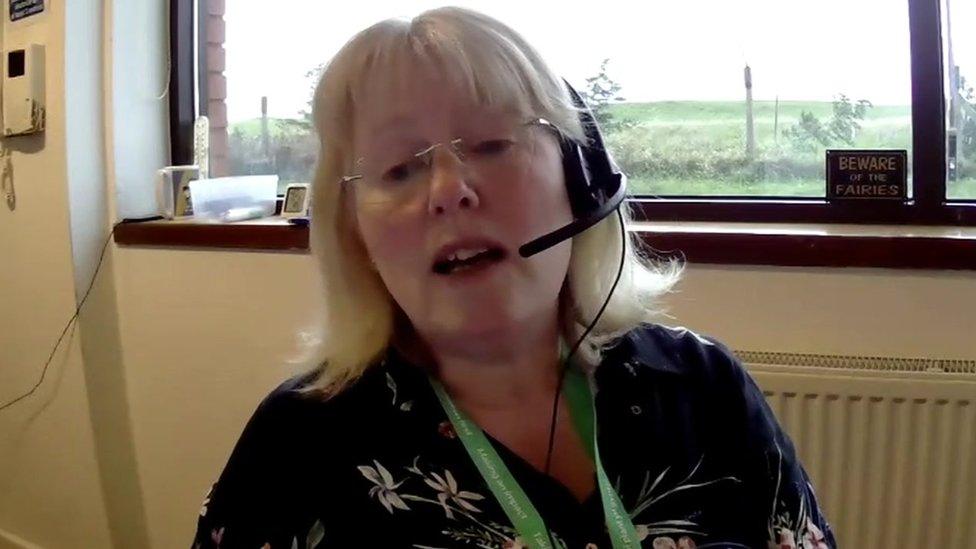
Vicci Holbrook-Hughes said some volunteers are shielding during the pandemic
"A lot of our volunteers are from a vulnerable category and some of them are older, so they had to shield when Covid started.
"Some of them have had to leave because they've got other issues, other conditions or family issues."
For volunteers at the Prestatyn centre, the problems of those young people contacting the service demonstrate the impact of the pandemic.
"I think they're missing everything about their life and how it was before," said Sandy Collier, who has volunteered with Childline for eight years.
"It's really affecting their mental health.
"Around six months after lockdown, I can remember one young person saying how they felt that everything in their life had just ended.
"Going to college, being with friends - that had just ended.
"They weren't suicidal, but that's how things felt for them because of Covid and what followed."
Ewa Turczanska, a volunteer with the charity for 15 years, said she has seen a rise in anxiety.
"There has been a lot more mental health problems to do with the stress and uncertainty we're all feeling about the pandemic," she said.
"They're missing their normal lives and not seeing an end to it [Covid], that's one of the current themes."
Ms Holbrook-Hughes said the voluntary sector is under pressure urged those who may have considered volunteering to take the opportunity.
"It's a sad reality that we're all [as voluntary organisations] asking for more volunteers and a lot of people are giving all they can give.
"But there are some people there who are just sitting on the edge, unsure. So I would say just, you know, just take the leap and do it."
Staff and volunteers have been given key worker status to continue their work during lockdown.
- Published9 October 2020
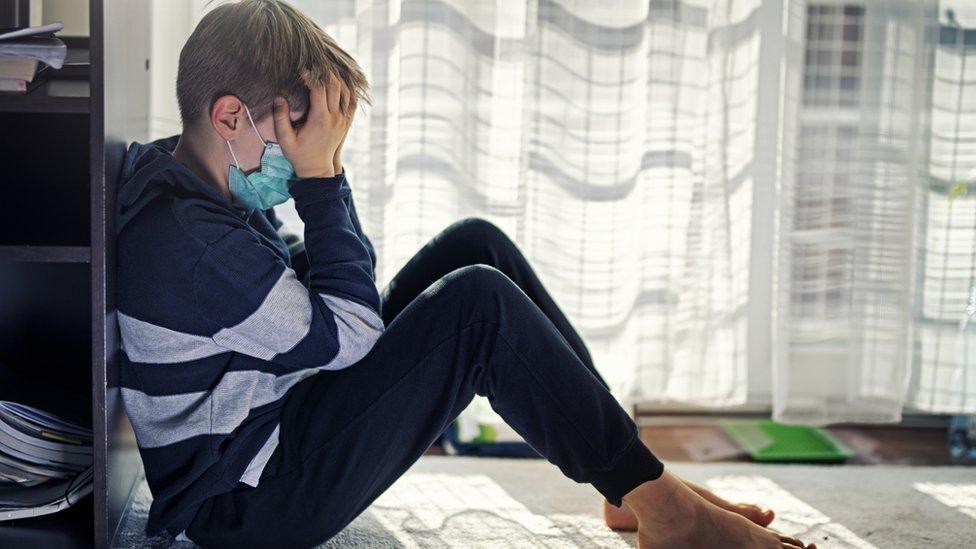
- Published8 October 2020
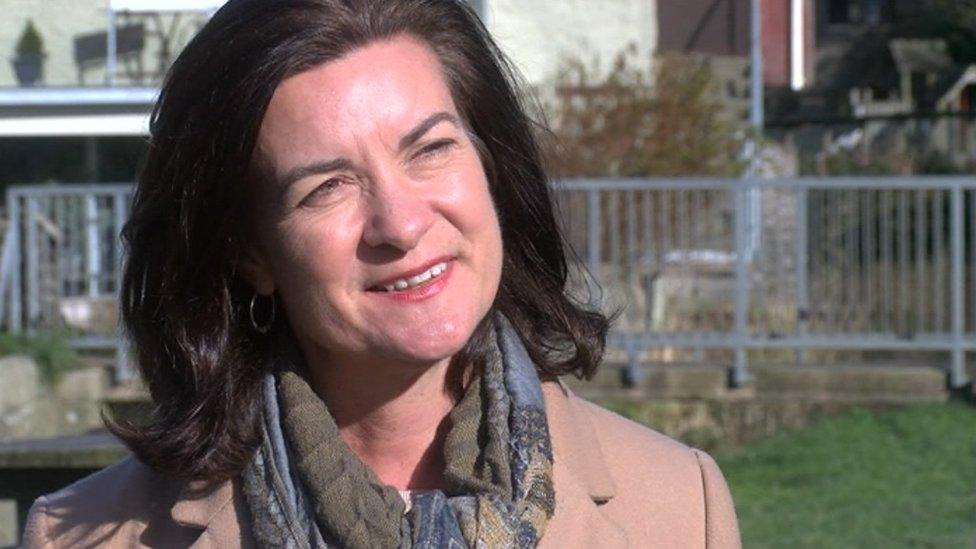
- Published24 July 2020

- Published30 April 2020
